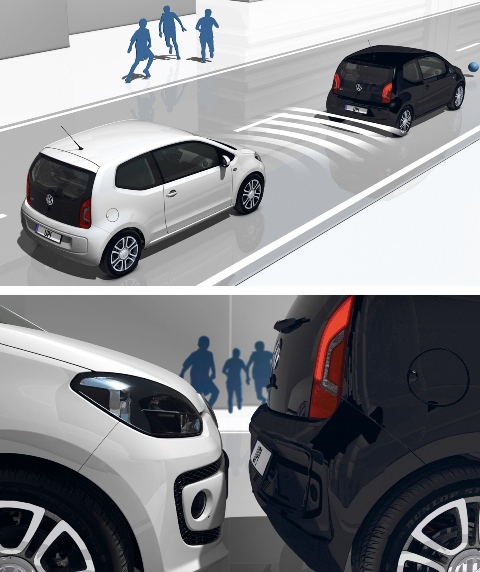
Author: Robin Roberts
European researchers are driving new ideas in road safety to reduce the risk of driver errors leading to accidents.
They are pouring EUR 6.1 million into developing systems which anticipate what a driver might do to avoid an accident. The new systems can cut insurance, damage and personal injury costs.
One of the first technologies to be utilised by the car makers are camera and sensor systems which look down the road, analyse hazards and implement avoidance measures before a driver reacts and the new VW Up! is among the first to install the equipment.
Models fitted with its City Emergency Braking system drop into lower insurance categories. It also has health and safety implications for companies and holds the promise of enhanced residual values, not to mention reduced time off the road for repairs and lost income as a result which can lead to other business car issues.
The ADOSE project for the ‘Reliable application specific detection of road users with vehicle on-board sensors’ is funded to the tune of EUR 6.1 million. Having the capacity to differentiate between fog and darkness, this latest system gives cars the ‘intelligence’ they need to respond to their surroundings but they still need the windscreen to be kept clear of excessive road dirt. Led by the Centro Ricerche Fiat Societa Consortile per Azioni in Italy, the ADOSE consortium comprises research and industry experts from Austria, Belgium, Finland, Germany, Italy, Norway and Sweden.
The project partners point out that the number of traffic fatalities in Germany, for instance, has dropped in recent years. Based on data obtained in various studies, novel driver-assistance systems are increasingly reacting more quickly to critical situations than humans can.
These systems not only have the capacity to identify risks, but they can also warn drivers of dangers and help them deal with critical situations and for business users it can bring insurance and running cost savings with reduced pence per mile for daily rental operations.
In the UK, Lotus engineering has been testing a forward facing camera which highlights hazards and then interacts with systems in a car to create a warning sound independently of the driver doing anything.







